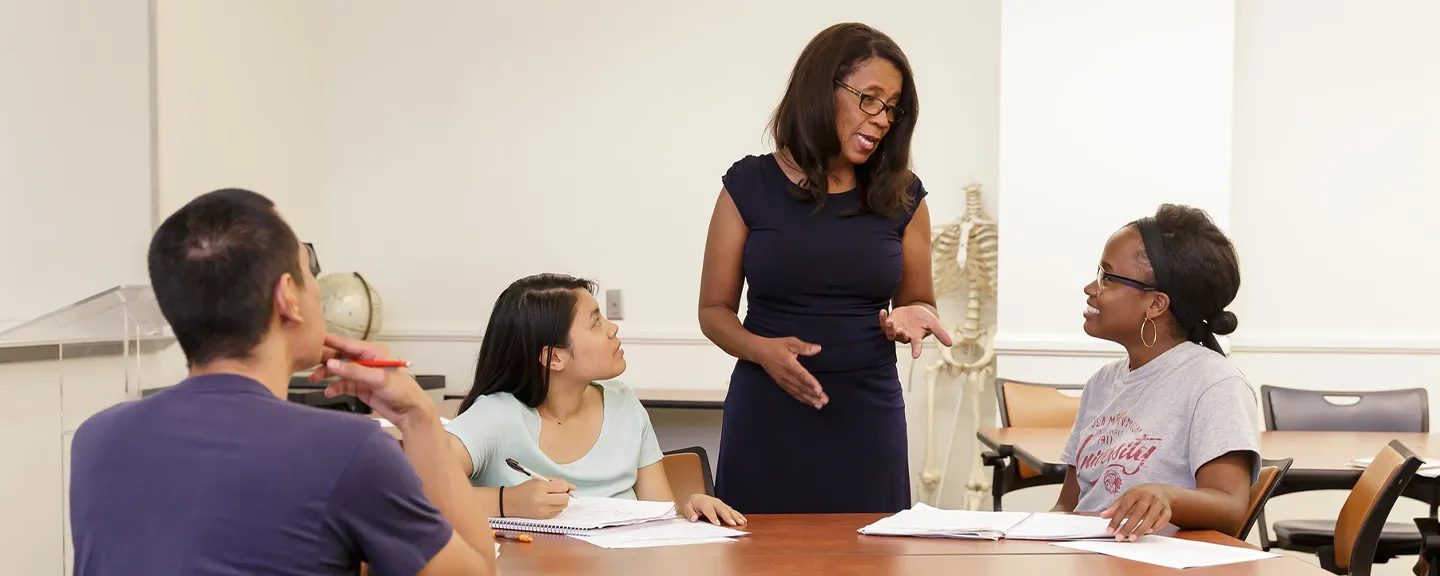- Home
- >
- APU Articles
- >
- News Article
Considering a Research Fellowship? Here’s How to Land the Right One
June 04, 2020 | Written By Tobin Perry

“Fellowships offer students opportunities to build credibility by contributing to knowledge building in their area of interest and to publicly share the relevance of their research and key findings to their communities,” said Anupama Jacob, Ph.D., an associate professor in the Department of Social Work at Azusa Pacific University.
A research fellowship presents an opportunity to collaborate with—and be mentored by—a faculty member in your specific area of interest. Additionally, fellowships typically include a stipend or monetary award to help you as you pursue your research.
7 Tips for Obtaining Your Desired Research Fellowship
Getting the fellowship you want isn’t always easy—mainly because you’re not the only one pursuing it. Most good fellowships come with some competition. The people judging your application want to see evidence that you can work hard and contribute something unique.
You can lean on some well-worn principles to increase your chances of getting a fellowship. Try building these seven practices into your process, and you’ll be well on your way to the research fellowship you want.
- Read the fellowship call for applications carefully. You want to know what the organization is looking for in successful applications. Also, take some time to make sure you meet all of the eligibility requirements.
- Review examples of successful applications. Many funding organizations will post examples of successful applications. Look through them carefully and note what these applicants do and don’t do. You can model your application after these.
- Write a clear and compelling proposal. Not every research fellowship requires a proposal—some look for applicants to work on projects of the funder’s choice. But if the fellowship call asks for a proposal, make sure it aligns with the goals of the fellowship. Also, make a case for how your proposed project will uniquely contribute to these goals. You can expect to create multiple drafts of your proposal, so give yourself time for revising and editing.
- Proofread your proposal. Before you turn in your proposal, take another look through it and make sure it’s clear and free of errors. Ask someone else to read through it as well.
- Connect with faculty doing research in your area of interest. Faculty members often have a good idea of potential fellowships in their fields. Once you’re ready to apply, they can also review your application to ensure you’re submitting a well-rounded proposal.
- Brush up on your interview skills. Interviews can be one of the most stressful parts of the application process for some positions. Talk to people who have been through the interview process before (particularly if they’ve interviewed for a similar research fellowship). It’s likely the professors in your field can help.
- Gain experience through industry internships. Involvement in internships will show funding organizations that you have experience, interest, and aptitude in the field. They are a great way to make your application stand out.
Finding Research Fellowships at APU
Jacob noted that there isn’t a set time to apply for a fellowship. Some fellowships require you to be in graduate school or at least an undergraduate junior or senior. Others are available earlier.
Azusa Pacific University has a variety of options to consider if you’re trying to secure a fellowship, including research fellowships in the Department of Mathematics, Physics, and Statistics. These fellowships provide about $3,000 in support. You’ll also get a chance to serve as a tutor, teaching assistant, or research assistant.
Additionally, APU’s Scholarly Undergraduate Research Experience (SURE) Award funds several undergraduate research grant proposals. The goal of SURE is to foster a culture of undergraduate research. Since the award began in 2013, it has funded 36 faculty/student dyads. These awards have led to professional conference presentations, published articles in peer-reviewed journals, participation in APU’s Undergraduate Research Showcases, and at least one national award.
APU students also have the opportunity to participate in the Student-to-Scholar (S2S) program, an undergraduate research fellowship offered through the Department of Biology and Chemistry. This annual program offers a few select students the ability to work in a laboratory research setting alongside a faculty-mentor.
Finally, APU’s Career Center can help you shape (or reshape) your proposal, so don’t hesitate to reach out if you’re struggling to get your foot in the door.
Do you want to learn about additional research opportunities? Contact APU’s Office of Research and Grants for more information.